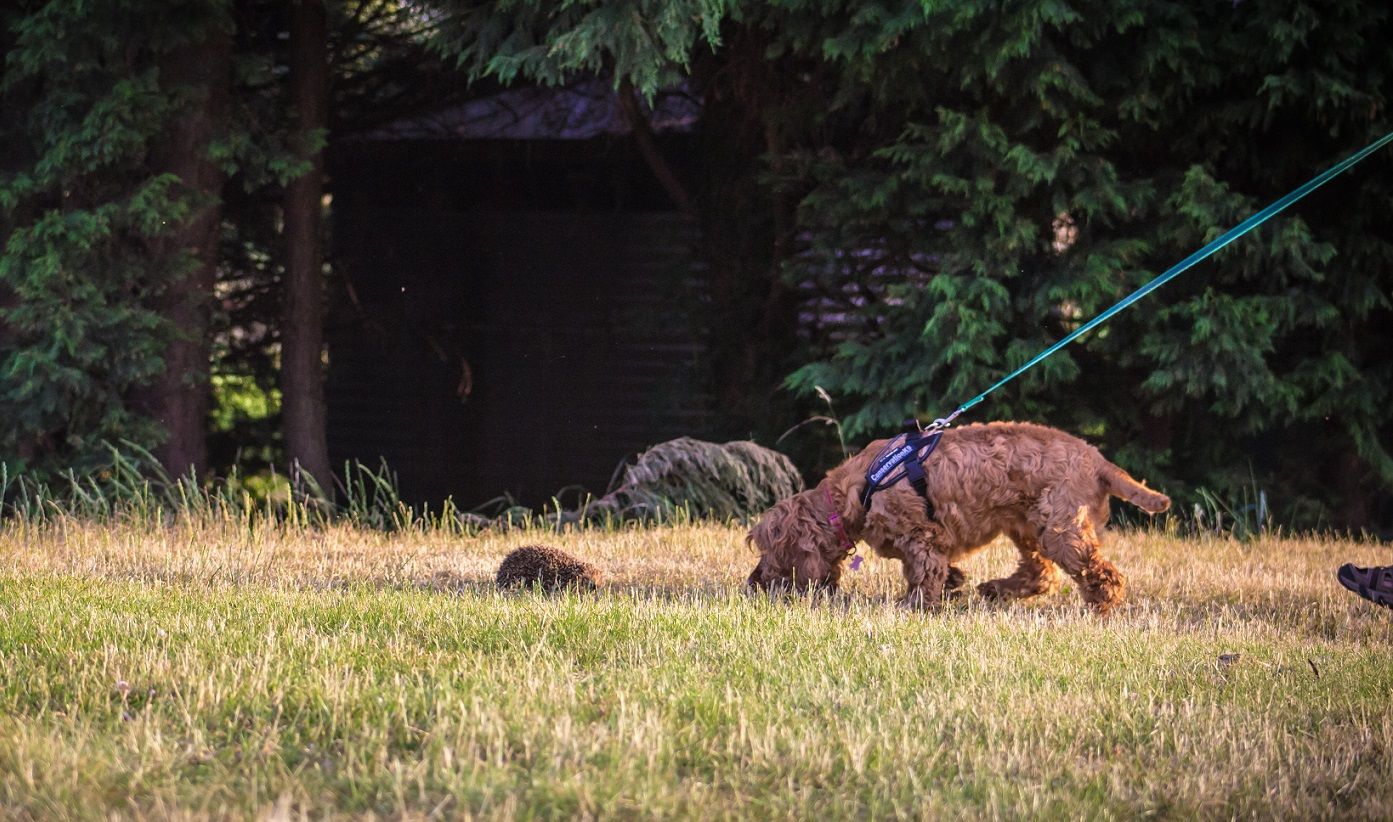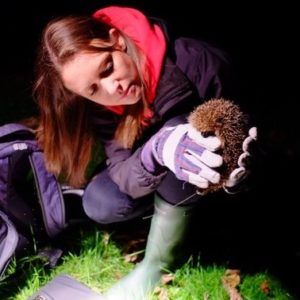Looking for hedgehogs

How do we find them?
Hedgehog numbers have been dropping for decades; it’s likely that we’ve lost half our hedgehogs in the past ten years. The reasons why are many and complicated. The loss and fragmentation of their hedgerow homes, the use of pesticides, and the fact that we’re tidying up our gardens and parks means that there are fewer suitable and safe areas for hedgehogs to roam. Interactions with predators including badgers, foxes and domestic dogs, can also be a problem.
The problem

We’re working hard to try and tackle the many problems that hedgehogs face. But, in order to help them, and to check whether what we are doing is having a positive impact, we need to be able to find and count hedgehogs. Unfortunately, detecting hedgehogs in different types of habitat can be challenging. This is particularly so in areas of dense vegetation and long grass, where they can also be vulnerable when land is cleared and mowed. We currently need a licence to use a spotlight to find hedgehogs. Due to their elusive nature and small size, they can be difficult to spot in many habitats, with their nests being particularly vulnerable. So, we are always looking for new, simple ways to find hedgehogs.
The solution
We are working with Lucy Bearman-Brown at Hartpury College in Gloucestershire to trial two new ways of finding hedgehogs: infared thermal imaging technology and conservation detection dogs. Conservation dogs have been used to find a wide variety of species across the world, including Javan rhinoceros, lowland gorillas and koalas. Thermal imaging can be a great way of counting nocturnal animals. But research into these methods looking for animals during hibernation and nesting periods is limited. Lucy and her team will see whether these two non-invasive methods of detection are more successful in finding hedgehogs than the other methods we currently rely on.
